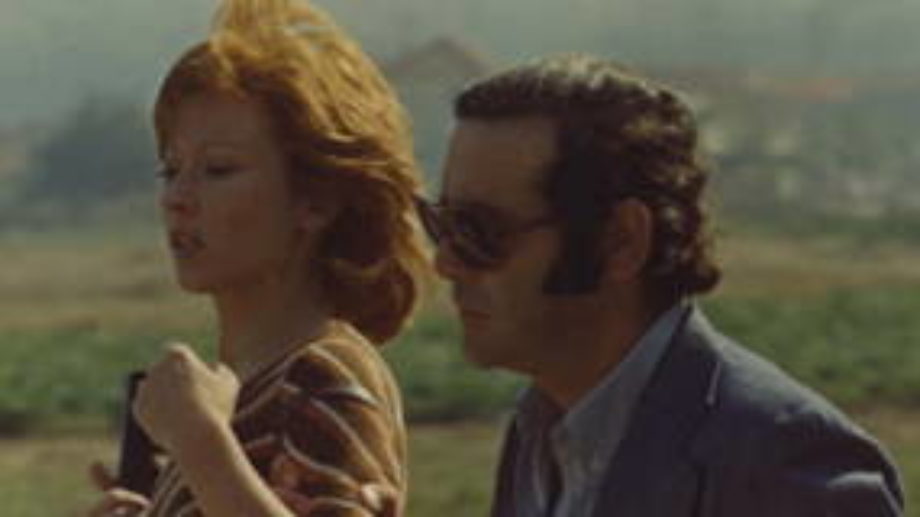
The first thing one tends to notice about a Maurice Pialat film is the meticulous crudity of its style. Each shot is slightly lopsided, each cut the cinematic equivalent of an awkward shift of weight. Pialat never seems to give his actors quite enough space to move at ease, and when he does he leaves big chunks of emptiness just hanging there. His characters invariably look either trapped or lost—any comfort is hard-won and short-lived.
The irony is that this man with all the visual subtlety of a wrecking ball should be arguably the most precise observer of human behavior in modern cinema. When he makes his characters' every facial tic or shift of weight speak so eloquently, we must assume that there’s some order to his aggressive inelegance.
One theory: maybe Pialat grew so close to his characters, identified with them so completely, that he rendered himself unable (or, more likely, unwilling) to express what they could not. Which, in the case of the central couple in We Won't Grow Old Together / Nous ne vieillirons pas ensemble (NYFF '72), is quite a lot. Our protagonist Jean dives into the most delicate emotional situations with an even mixture of clumsiness, tactlessness and rage (if, as has been suggested, he’s a surrogate for Pialat himself, the self-portrait is far from flattering). We watch him spend whole conversations fumbling for words, or withholding apologies even as his body language willingly offers them up. If Jean and his put-upon lover Catherine look ill-at-ease, it’s because they inhabit a world modeled after their own relationship: a fractured, lopsided place that only occasionally resolves itself into absolute clarity and grace.
We do learn a great deal about Jean and Catherine over the course of We Won't Grow Old Together, only not from them—directly, at any rate. Our insight into their inner lives depends on their unconscious reaction to discomfort, be it self-inflicted or imposed on them by a filmmaker too close to their own temperament. Pialat’s clumsiness does have an end after all: as this couple shuffles about anxiously in his too-cramped automobiles or too-open beaches, they begin to open themselves up. We could watch one of their strained seaside exchanges and understand the couple’s emotional dynamic perfectly without catching a single word, only by observing the way Catherine nervously plays with the small pebbles at her feet.

It’s tough to place Pialat’s relationship with his protagonists. He identifies with them so completely as to take all their neuroses and all their clumsiness upon himself, while at the same time observing them with detachment worthy of an anthropologist. Maybe it’s from that middle ground between identification and observation that Pialat was able to conjure up such depths of compassion.
Maybe it takes that peculiar balance to represent whatever is behind the silence of Jean’s long-suffering wife (Macha Meril), whose few downcast glances speak at least as loudly as any of her husband’s desperate theatrics. If Jean and Catherine reveal themselves inadvertently by all their little instinctive gestures, Meril’s Francoise reveals herself precisely by her unwillingness to do so, by her unshakeable composure. Few filmmakers could have coaxed out such nuance from a performer, and fewer still could have made each of those little acts of self-restraint cut like a cry for help.
It’s a good thing these characters have Pialat. Their calls for compassion and their tender apologies inevitably die on the tip of their tongues, or come out sounding more like fresh cuts than attempts at reconciliation. They need a spokesperson who sees what they want to say and knows how to articulate it—who can look at them with the warmth of an equal and the levelheadedness of an analyst. They found one. We leave We Won't Grow Old Together exhausted, devastated, but also burning with a strange pride—the feeling that, through Pialat, we gave these characters something they couldn’t give one another: empathy, understanding, and love.
We Won't Grow Old Together opens today for a one-week run in the Elinor Bunin Munroe Film Center, a continuation of this 40-year-old film’s first-ever U.S. theatrical engagement. See it as it was meant to be seen: on the big screen in a beautifully restored 35mm print! Of Pialat’s 10 features, seven were official selections at the New York Film Festival.



